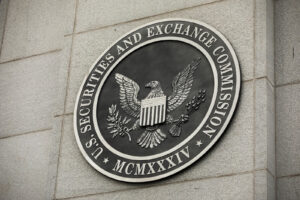Crypto business has increased in Thailand, but broader issues

A new report from crypto venture capital firm HashKey Capital has hailed Thailand as a crypto haven due to rising trading volumes. However, the truth of the matter may not be so simple with illegal crypto payments in the Southeast Asian nation.
On December 7, HashKey published Thailand's blockchain landscape report, naming the country a 2023 crypto hotspot.
The growth of Thailand's crypto business
The report covers a total of $116 billion in trade volume from January to October 2023.
It stated that the average monthly traffic to CoinMarketCap reached 648,000 in 2023, which is around 0.94% of the total population. “Thailand's visitation rate per capita is 0.21% higher than that of the United States,” HashKey said.
The Bitkub exchange has a market share of 77 percent. Bitcube has a daily trading volume of about $82 million, according to CoinGecko.
Additionally, Chainalysis' Crypto Adoption Index reports that Thailand ranks tenth globally with 2.94 million crypto exchange accounts.
Read more: Digital Nomads and Web3: A Guide to Traveling and Working the World
While Thailand's transaction volumes seem healthy, the actual situation regarding crypto in the kingdom is not that exciting.
Outside of a few cool cafes in the capital city of Bangkok and digital nomad hangouts on tourist islands, crypto is virtually unheard of in the rest of the country. This will come as no surprise if the then ruling junta bans crypto payments in March 2022.
The newly appointed government has launched a digital wallet scheme that will provide handicrafts to boost the economy. But this plan is facing a backlash from the opposition as the post-election promises begin to unravel.
Charging offshore crypto trader income
One of the first things Thailand's new government did after taking office was to introduce a tax on overseas earnings.
In particular, he mentioned stock and crypto traders who earn money abroad and bring it to Thailand. This will prevent Thais and foreigners from trading crypto on overseas exchanges and bringing funds into the country.
HashKey also reports that crypto transactions are currently taxed at 7%. He added, “There are ongoing efforts to reclassify crypto as an investment product in line with stocks.” This could result in decentralized digital assets being classified as securities.
Moreover, the Central Bank of Thailand is still anti-crypto. Fissures are always feared, leaving the retail sector in limbo over the future of the property sector in the kingdom.
Thailand is booming in business, and there are regulations in place for digital asset businesses, but it's not exactly a crypto haven.
Disclaimer
Adhering to the Trust Project guidelines, BeInCrypto is committed to unbiased, transparent reporting. This newsletter aims to provide accurate and up-to-date information. However, readers are advised to independently verify facts and consult with professionals before making any decisions based on this content.














